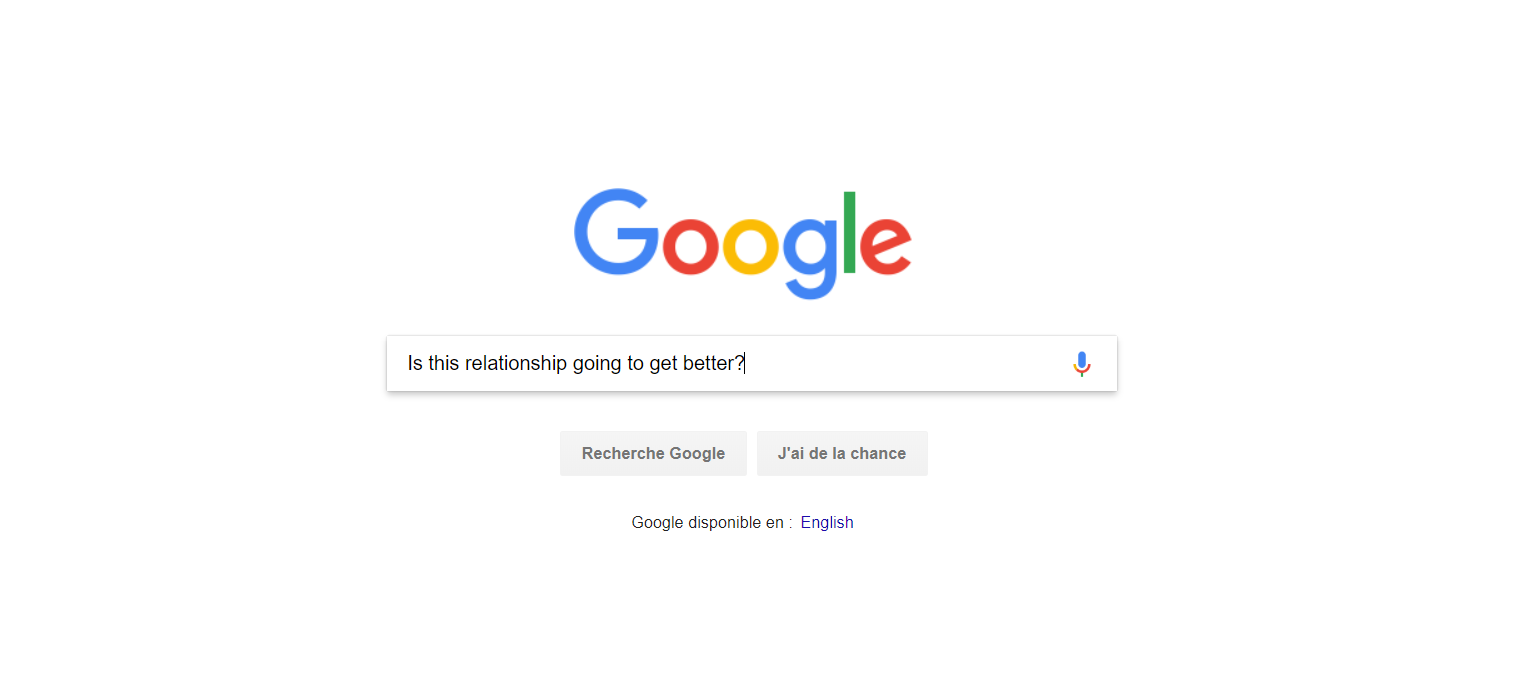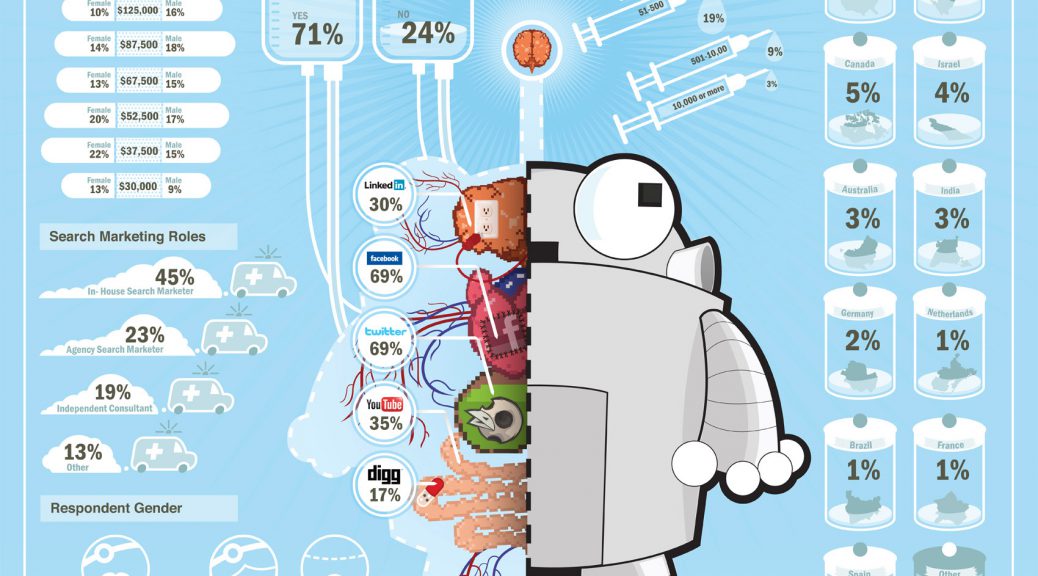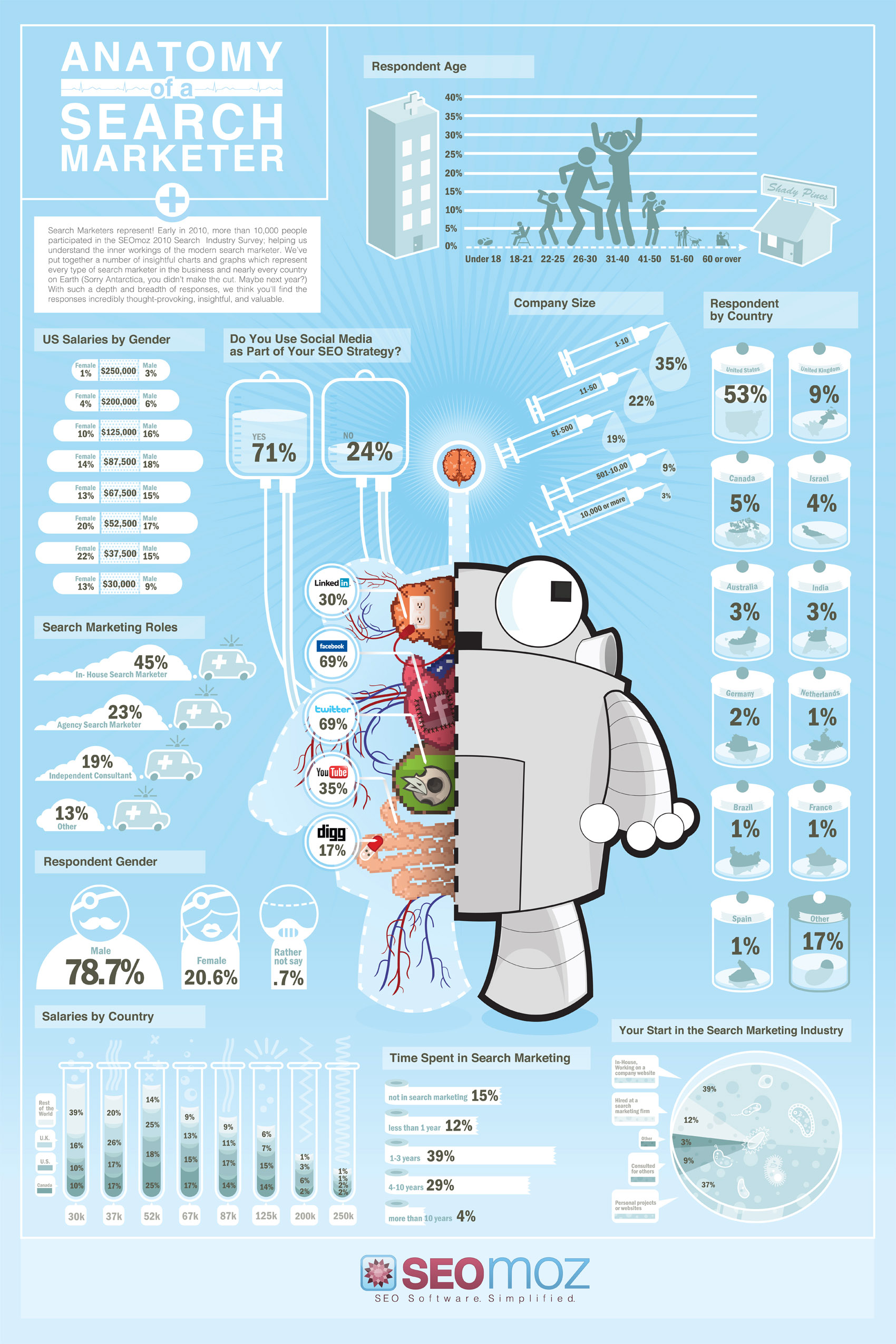 People generally don’t like negative truths that expose something about themselves so let me caveat everything below with: this is just an opinion, there is no absolute truth on the subject but “this deal keeps get worse all the time!” is echoed by a subset of marketers called search engine optimizers, almost daily and I know why (or at least I imagine because I got out of that career path 18 months ago ).
People generally don’t like negative truths that expose something about themselves so let me caveat everything below with: this is just an opinion, there is no absolute truth on the subject but “this deal keeps get worse all the time!” is echoed by a subset of marketers called search engine optimizers, almost daily and I know why (or at least I imagine because I got out of that career path 18 months ago ).
SEO as a tough career path: Search Engine Optimizing is absolutely a useful skill. You can read and internalize the book “The Art of SEO” and help Google, the internet’s librarian, find relevant content. That work is useful, no doubt. The grey area is when people try to turn it into a career without the necessary madness and passion. Most SEO folk get paid to help content creators AND/OR/ARE content creators. What do they do? Compete for Google’s affections by attempting to reverse engineer how Google’s organic search algorithm works and cater to how it works. It’s a logical leap of faith in a crowded market of optimizers. The goal is to appear in the top position in the organic results of various key word searches since you get more clicks to your site that way. The best content should appear on the first page of the search results but considering the subjective nature of the “best”, search engine optimizers have been able to say their content or their clients’ content should be ranked as the “best” and often charge clients a fee for the promise of performance via technical and content prowess…The problem is that that strategy fails at a high rate, so they then promise they will do their best for their client which ends up being – like – more of a learning experiment for search engine optimizer/practitioner…remarkably similar to management consulting. Basically, you are an outsourced solution for a problem that no one with any brains wants to own because the solution has a low probability of success. In fact, the term SEO has been tarnished for several decades in reality…
Why? Short-term actors have simply tried (sometimes successfully) to game Google’s algorithm with paid links for example. Sustained success however is fraught with difficulty: there is only one webpage that can rank 1st for a given keyword, even if there are millions of keywords it ain’t easy to rank for one (non-branded ie “Pepsi” or “Disney”) keyword, second, there is no way to A/B test organic performance to see if what you are doing as an SEO is actually the cause of an improvement or drop in performance*, so if your client suddenly ranks in first position there is no way to know if your efforts were the cause…so you take credit for the good and disavow the bad like a standard politician. Fortunately, even well educated people love to draw a cause and effect between two things, have poor memories and are nice people. So you can craft a narrative to persuade them you are awesome. Complex problems don’t have silver bullet solutions. All good stories, however, have a cause and effect pattern, and everyone likes a good cause (seo techniques) effect (better search ranking).
Needless to say, the relationship with Google has been antagonistic since SEOs are paid to rank their client’s content over Google’s more objective measures. But the valued relationship is between content producers and Google. How’s that work? Google crawls and indexes websites, uses your servers’ bandwidth and scrapes informational content IN EXCHANGE those content creators will receive Google search traffic by appearing on the search engine results page (SERPs)…..
Google is Decoupling The Deal With Content Creators (No Click Searches Are The New Norm)…the problem is Google increasingly wants to provide the best answer without sending users to the sites that provide those answers. Instead of encouraging users to click on a link to a website like webopedia.com, Google is building a personal assistant solution working off the backs of content creators without giving those creators the benefit of that traffic. How? By answering those user questions directly on the search engine result page, placing organic results way down the page, below paid advertising. 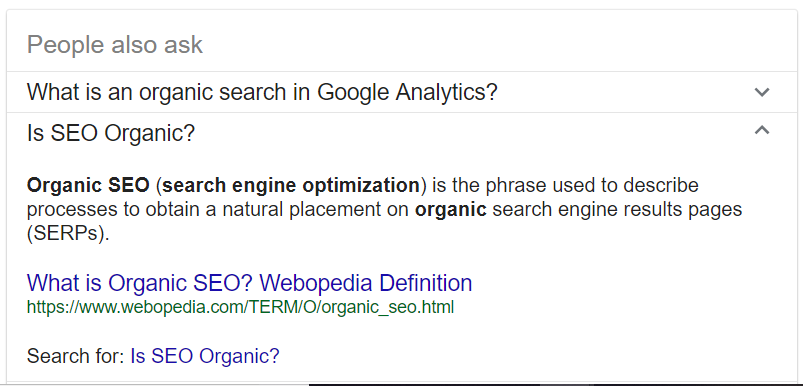
Google’s changes over the years have moved further and further away from content creators, to exclusively manage the interests of users. Principally on the smartphone where clicking to a new webpage is a pain, Google has squeezed organic content creation down below their pre-set answers. The consequences are that more content creators will allocate budget towards paid search results and treat search optimizations as a nice to have long-term project of serendipity but not a short-run conversion source….”We won’t have a next year, if we don’t drive traffic through paid!” might be something you’ll hear more and more. Creating organic content has increasingly diminishing returns but it seems like we will need to evolve even further away from the “SEO-gets-paid-to-rank-principle.” Technical website improving has its place but it too is dubious as Google uses hundreds of factors to circumvent poor performing websites in order to get users what they want….
Google search has +90% market share, hence they have a competitive advance, in the UK, for example. Content producers have limited re-course for example, only if every website blocked Google’s crawler, could content producers influence Google’s policies? A virtual protest against Google might work if you got the BBC to block Google’s crawler…But then other websites would take advantage in order to rank appropriately for those terms. Game theory is a pain. And SEOs are either trying to game the search engine or support it. In either case, Google doesn’t and hasn’t ever really wanted or needed the help of careerist SEOs. Google wants great content to please customers. And makes pay per click (PPC) or paid advertising in the search engine result page a far more crass and transparent means of allocating a marketing budget as it pertains to Google.
The % of organic and paid clicks changed with Instant Answers were rolled out in 2018. Now that this is rolled out, entire SEO agency workflows are undermined in various ways. Meanwhile doing what is best for searchers is what Google has used to justify all kinds of unhelpful changes that undermine marketers.
- On Video: Google is basically recommending lists of films….no foreign films….above actually movie sites.
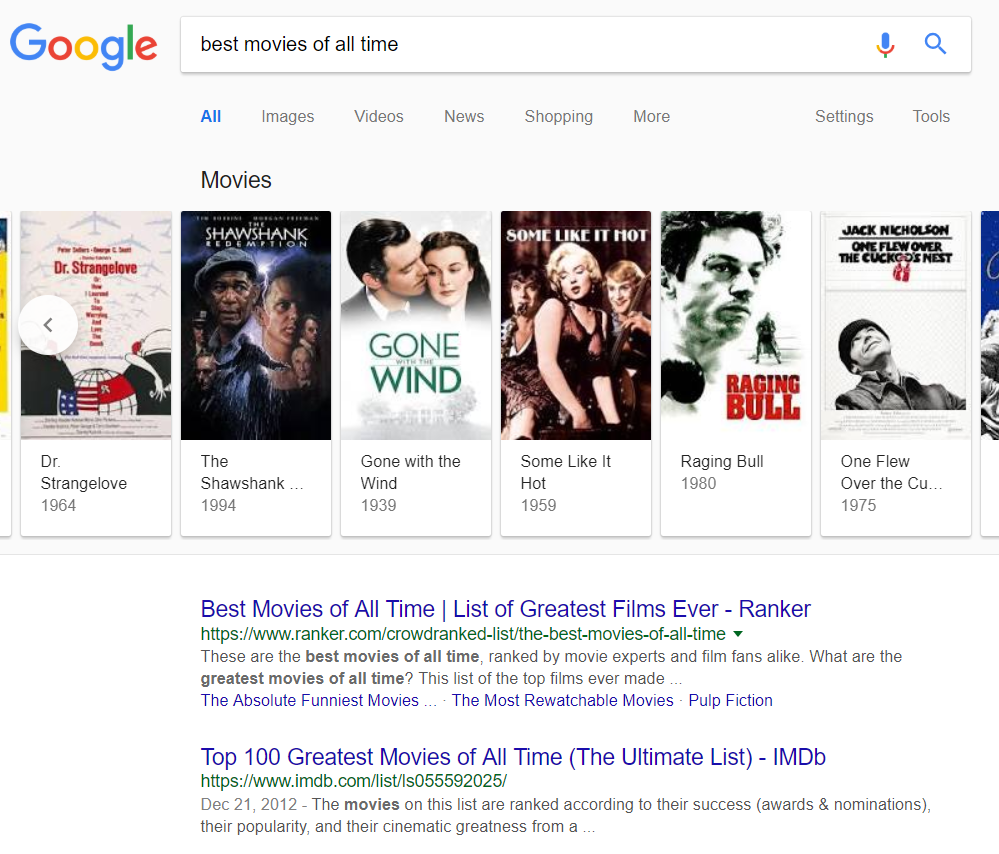
- On Weather: Google owns this search and is taking away traffic from the Weather Network…London, UK was the same, I can confirm from my pre-2016 days.
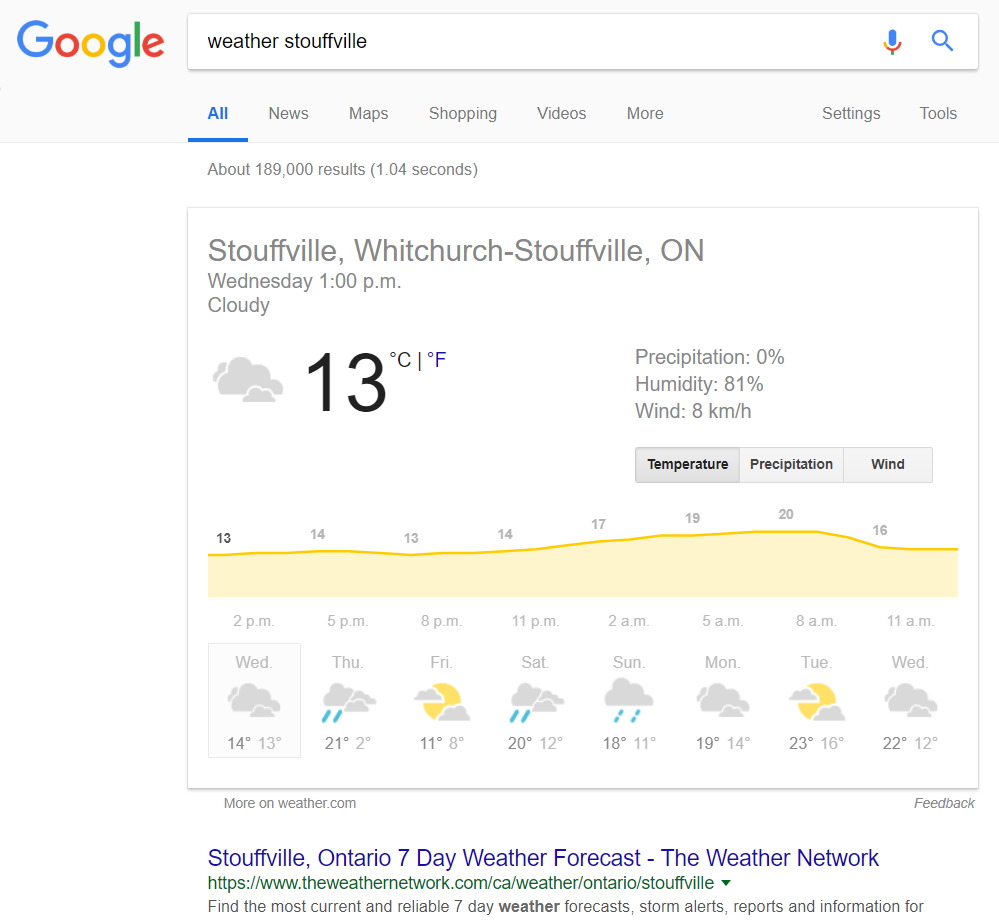
- On Flights: Google puts its own results on flights above the airline’s own pages unless there is a PPC ad spend that these airlines are willing to shell out to Google.
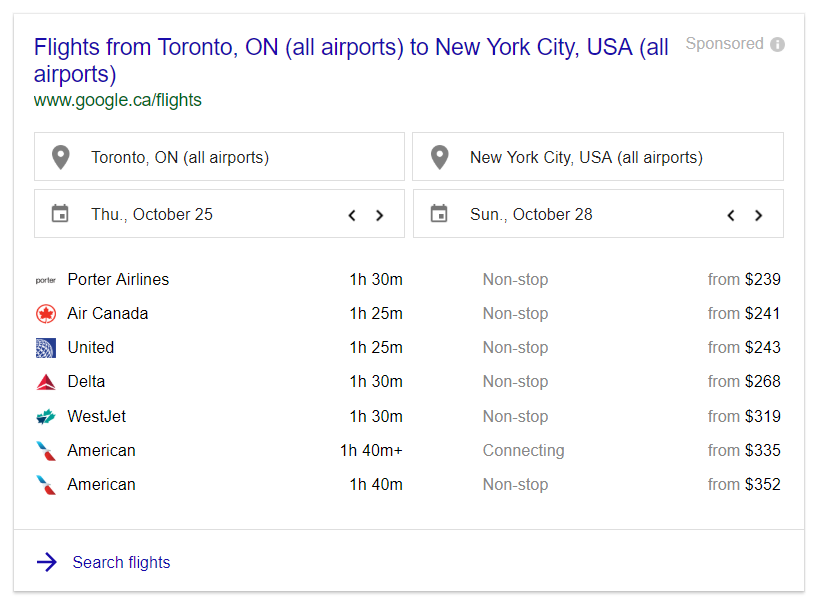
- On Sports: Google sports information on the search. It brings no traffics to the franchises
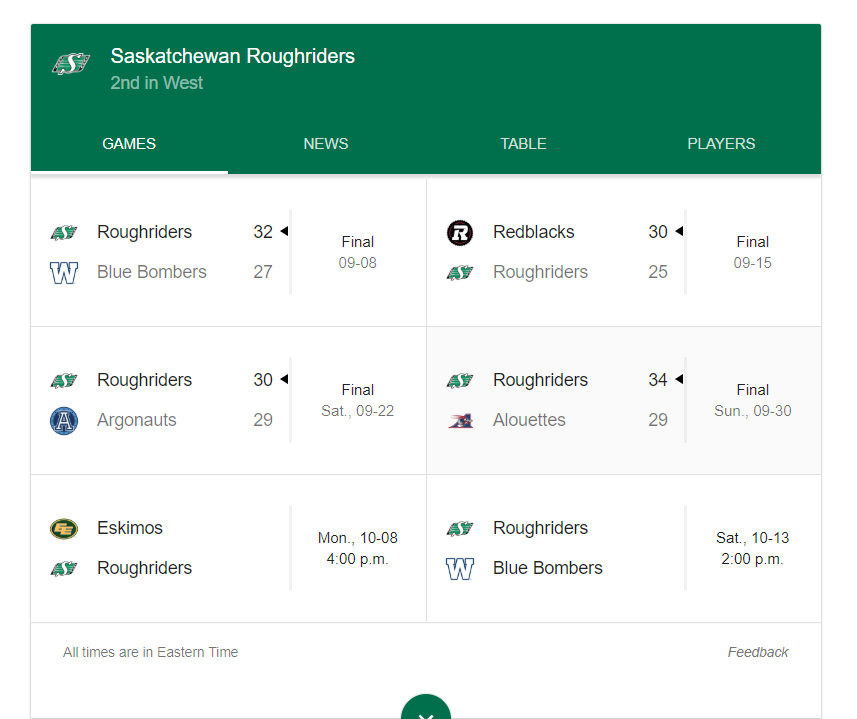
- On Hotels: Google eats Trivago for breakfast, that’s why Trivago advertises on TV (to drive traffic to their brand name since Google also supplies options)…
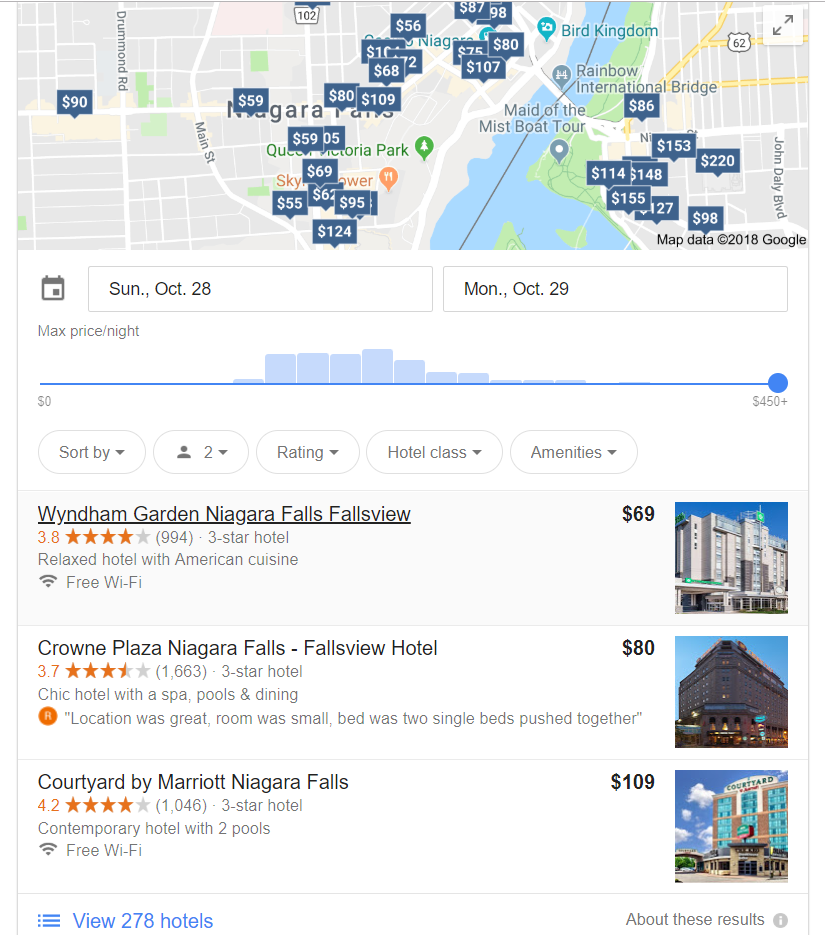
- On Best of Anything: Google wants to control the options AND they want to link to US sites for users in Canada, eating Canadian dog food companies for breakfast.
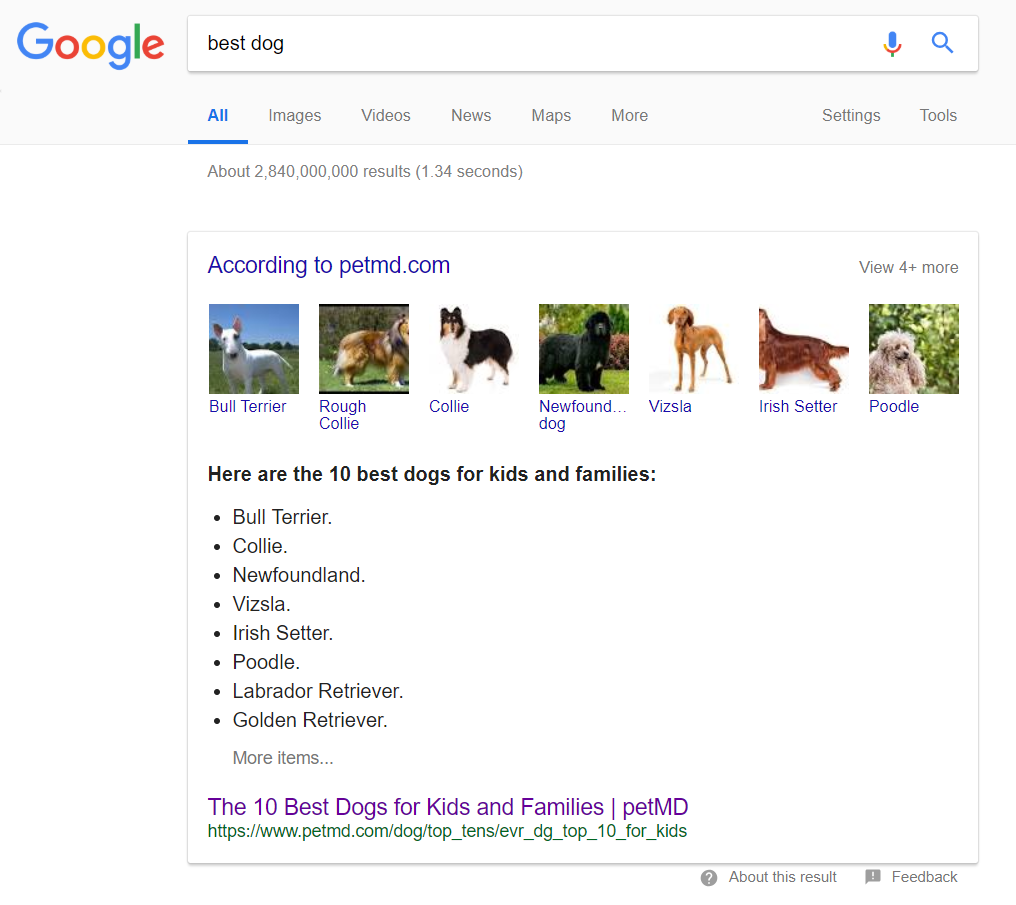
Facebook has killed organic reach for postings by only scaling out posts that go “viral”: I’m not getting the stories from my own extended family as a result. Twitter and Linkedin have been trying to show content that contains no links so that users stay on their sites. Reddit has tried to keep people on Reddit as well. YouTube has cut out the descriptions linking. Amazon is extremely stingy about links.
UPDATE October 2018…..
Rand Fishkin’s solution to these challenges is to continue to believe in something that is (career-wise) completely impractical and unwise that “If you can nail it [create the perfect, high ranking page, under budget], you will get tons of traffic to your site….” But it’s pretty much impossible to “nail it” with any consistency. The idea that because something is harder, it makes the best even more sought after completely denies the fact that there are massive externalities that determine search performance (i.e. luck, trends)….Oh and no one posts comments saying their campaigns fail 95% of the time because they are still trying to work in this industry. Fishkin is in a jam because he can’t say that what he has been evangelizing is a low reward career (for the vast majority) because he’s made the skill approachable, fun and his excitement does not match the competitive realities, which is a huge let down. Fishkin has left Moz in what seems like a pivot away from SEO entirely. That should tell you something right there…
Anyway….
The Bad News (all SEOs should know):
- If you go to BrightSEO where false prophets grant you an away day, then you’ll hear a lot of complaining about the demolished value creation in the face of automated technologies that reward dwell-time on a page and other metrics you can only influence immeasurably which make sense for content but not for search engine optimizers.
- There are little boosts of performance that string your self-worth along. Serendipity is what you’re experiencing often because Google doesn’t disclose what is working or not working independent of all the myriad marketers also trying to rank for a given keyword.
- SEO is really a stone soup (you think you are doing SEO ie. placing a stone in an empty pot….when you are really creating unique content or providing technical search-ability….ie convincing the towns people to add vegetables, spices, chicken broth, meat thus creating a delicious soup), As such, SEO allows you to develop other skills: excel/presentations/persuasion/coding skills.
- The performance of SEO requires that you pretend to have a secret solution that is attained through agency scaled R&D, however very often, knowledge share of techniques between colleagues is hampered by deadlines and a lack of codification/training.
- *As I said above, A/B testing to control for what change has a causal impact on a website is notoriously difficult. This problem is massive in many industries so it’s not entirely fair to call out SEO. Here’s an example from the political realm: a politicians says that if their opponent was in power, then X bad outcome would happen….the problem is there is no way to access the parallel universe what that opponent IS in power, to control for time series, the same population the same everything else, so that you can PROVE that the if the opponent was in power, then X bad outcome would be a reality. With SEO, splitting out a website and directing Google to crawl two versions in order to reverse engineer how Google ranks your site is not allowed…because if it was then people would be doing a lot. Agencies are the closest to creating a control group for a given website in real-time against another website (similar website). But this is complex and requires rigorous tracking.
- It’s often advantageous for companies to bring SEO in house rather then depend on an agency and then squeeze that employee into a Social Media and general marketing function…..
The Good News:
- You don’t have to work in this field! If you can pivot out of it, then do so!
- You might find the work really fun and have tons of passion for the work and so I say carry on!
- Long-tail queries are still ripe for search engine optimization of content! (slow clap)
- You can build interactive content! (with your giant budget)
- You can build great content! (if so then get paid for that directly as a journalist or creative)
- You can basically create content in the formats that the monopoly want! (as competitive as that is)
- You can make a website perfectly in-tune with best practices (but no marketer and no web-development team wants to be wholly in the service of a search engine).
- You can ignore this post because it doesn’t really rank for any keyword because I’m too busy to bother trying to get this page to rank, maybe you’ve found it through serendipity. Congrats and good luck. Chill and take this post with a grain of salt.

